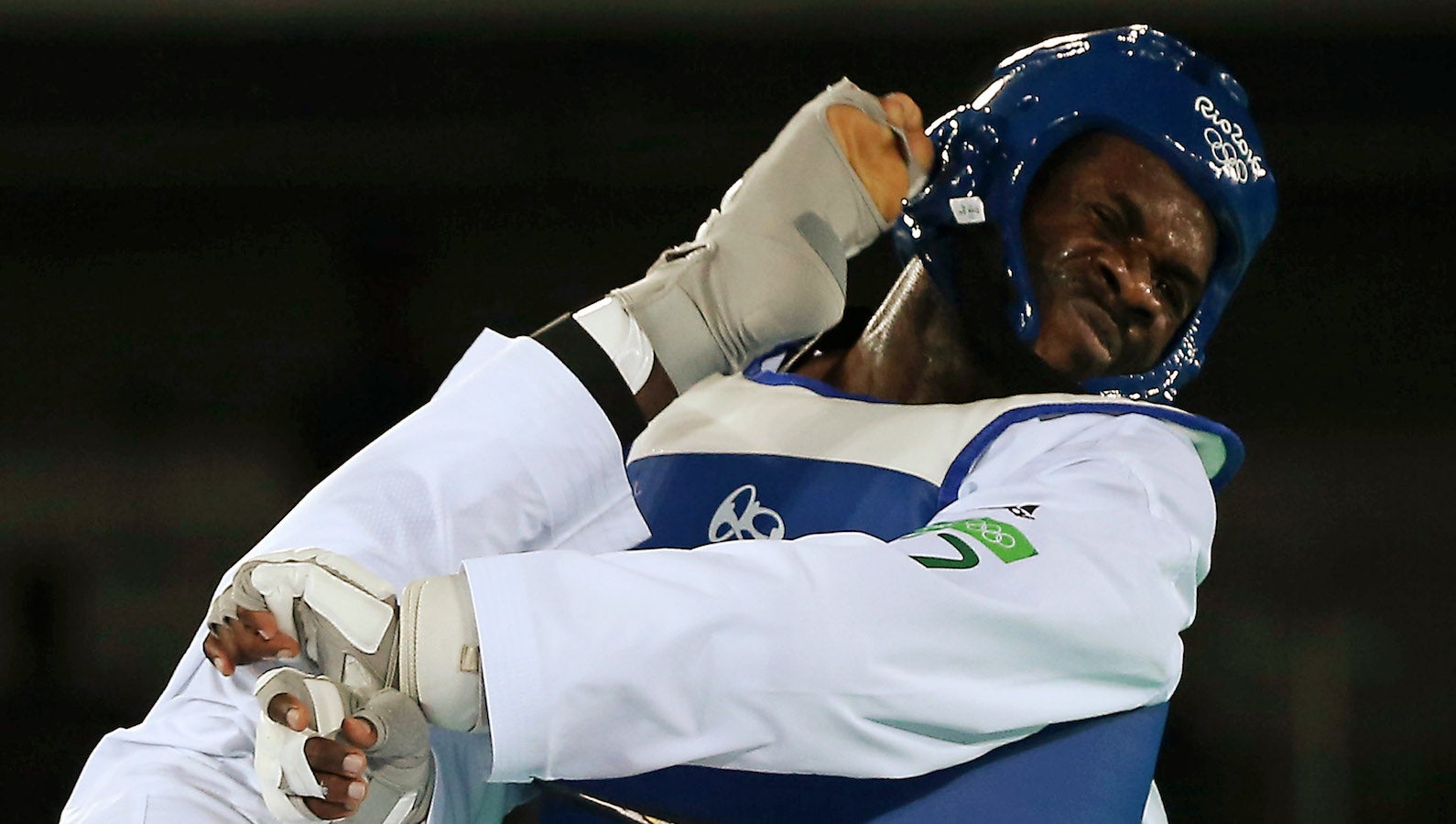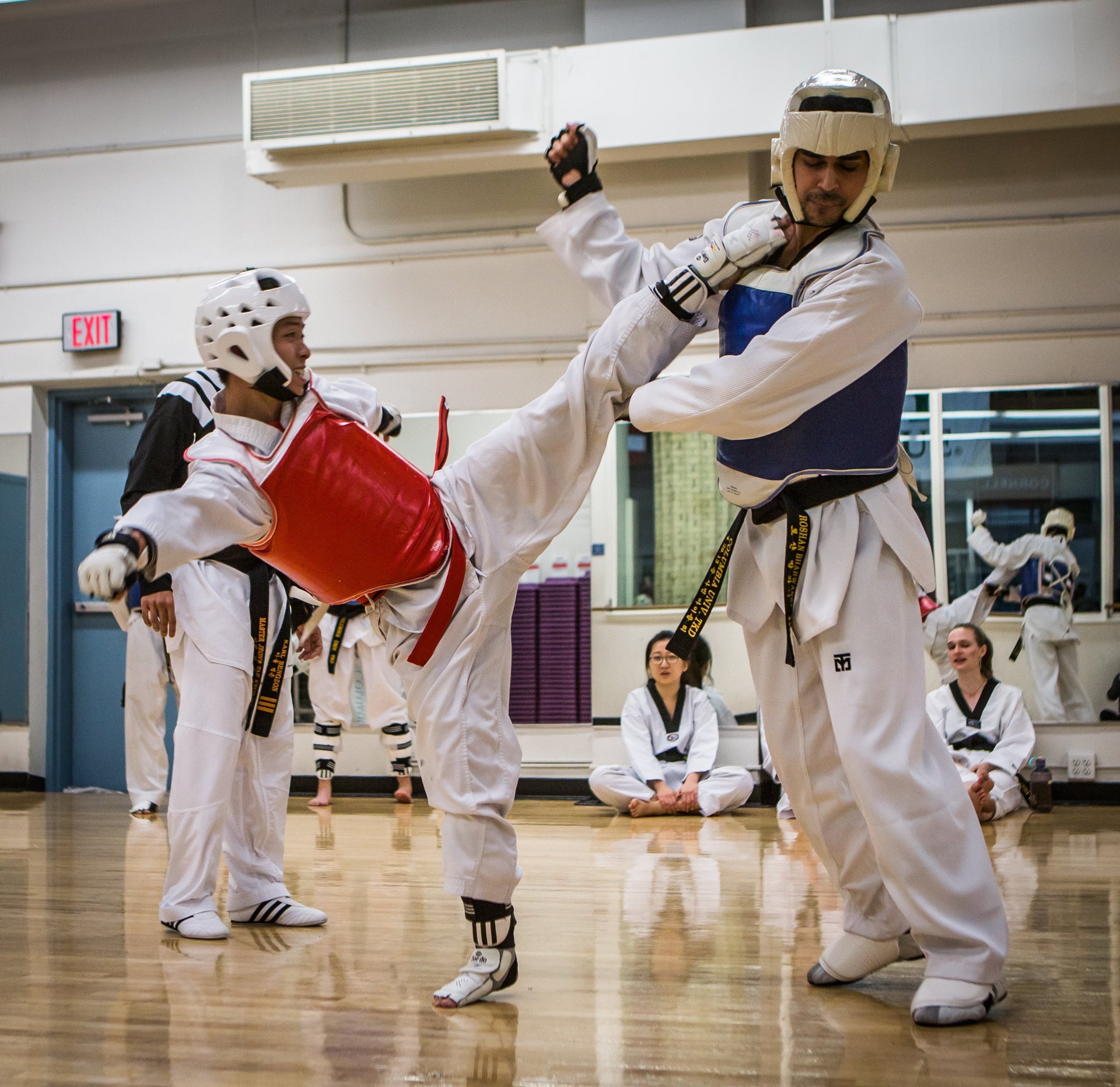What an unexpected kick in the face taught me about humility
For more than a decade, I’ve worked helping to develop thousands of leaders from around the world at programs I have run or sponsored. In that role, I am constantly learning and forced to evolve so that I can best serve my audience. My other pursuit, one that also keeps me on my toes (quite literally), is Taekwondo.


For more than a decade, I’ve worked helping to develop thousands of leaders from around the world at programs I have run or sponsored. In that role, I am constantly learning and forced to evolve so that I can best serve my audience. My other pursuit, one that also keeps me on my toes (quite literally), is Taekwondo.
I have been practicing Taekwondo for almost 18 years and have been an instructor for about 15. Taekwondo, the Korean art of kicking and punching, is one of the world’s most popular martial arts as measured by number of practitioners. It has been an Olympic sport since 2000 and is best known for its high kicks. I have a fourth-degree, master-rank black belt.
Recently, myself and several other black-belts were asked to spar with students as part of their test to achieve black belts themselves. I was sparring one of the candidates, Frank. Frank is less experienced than I am, he’s shorter, and he had been performing other test requirements prior to our match that were exhausting and challenging. Under these conditions, it is very unlikely for a candidate to score a headshot on a taller and more experienced opponent. For the first two minutes, it had been a largely one-sided match, as is normally the case when a candidate is testing for their black belt.
And then, in front of our entire class and head instructor, I was kicked in the face by Frank. This moment also happened to be captured on camera:

I wasn’t going easy on him and, after the successful strike, both he and the audience erupted in excitement. In that moment, it was as though Frank won by knockout. This was a David and Goliath moment—and it wasn’t pleasant being Goliath. I was surprised and in disbelief.
After the test, I began reflecting on ego and humility. I thought about moments that humble us in our professional careers. In speeches given by many award winners and newly appointed CEOs, they say they are “humbled” by the award or appointment. The phrase has now been used so many times in acceptance speeches that it’s become almost obligatory, but do they really mean they’re “humbled?”
Humility refers to being free of pride or arrogance. People who use the phrase probably mean they feel they don’t deserve the win or appointment, but is that really the case? If they strongly believed that, would they not decline the award or promotion? Maybe they are using the phrase so they appear humble, but to say they feel honored is probably more accurate. What they’re experiencing in that moment is quite different from being kicked in the face.
Failure in front of subordinates is potentially embarrassing and our psychological defense mechanisms may activate to protect our ego, as in my case of the initial disbelief at getting kicked in the face. If I view Frank’s successful strike as a lucky shot instead of resulting from his own skill and merit or my poor preparation and focus, I close myself off from the learning opportunity.
If I had told Frank and the audience after the match that I let him score on me (which wasn’t the case), that would protect my own views of my ability and maintain the difference in hierarchy we have. But the negative effects would be to reduce his sense of accomplishment and diminish the appreciation that the audience had for him. I, too, would miss out on the opportunity to reflect on my own vulnerabilities and ego.
Experiencing failure helps us remain humble if we have the courage to reflect on the learnings instead of explaining away or making excuses for the failure. Accepting failure and remaining humble also helps keep us resilient and willing to take risks.
In the workplace, kicks to the face will come and many of us avoid them to our peril. Upon discovering a mistake in a presentation, how many of us stay silent in the hopes that no one discovers the error? Instead, it’s better for the team and work itself if we speak up and confess the error and correct it. How many times have you been in a meeting when someone uses a term you don’t know? Rather than admitting ignorance, most of us stay in the dark and miss out on the opportunity to learn and contribute to the discussion.
Mistakes will happen. You’ll be late to a meeting. You’ll call a client the wrong name. You’ll transpose numbers in a spreadsheet. You’ll have no idea what that funny acronym means. These things happen. Rather than pretend you’re immune to these human failings, why not accept the kicks to the face as inevitable? Solutions will come more quickly. Errors will be corrected on the spot. Staying humble means that you will be someone who cares more about the work than your ego. Successful leaders are resilient in times of adversity and often have histories of major successes and failures that they have learned from.
After the belt test, Frank and I gave each other a big hug. During the match, in that embrace, and at all times, we engage as equals. The rest of the team, who viewed the match, didn’t shun or look down on me. Even though I am a Taekwondo black-belt, I know I don’t have to act or be perfect. I believe I am there to help others and I want others to feel I am there to help. I’ve learned that this brings appreciation and trust. I believe I am also refining my abilities and knowledge, that there are always more things to learn and ways to keep growing.
One of my Taekwondo instructors once told me to never think of myself as a master or that I have nothing more to learn from others because, if I do, that is the end of my learning and growth. If we cease to be reflective and humble, we risk stagnating and diminishing. I have the good fortune of participating in a sport that helps keep me humble.
It’s not the first time and probably won’t be the last time I’m hit in the head—and that’s not a bad thing.
Roshan Bharwaney has worked on executive development at WPP, the world’s largest advertising group, for the past 13 years and has written a book about teaching Taekwondo.